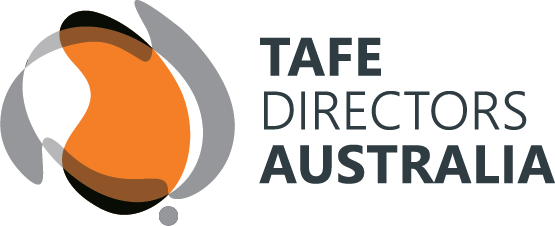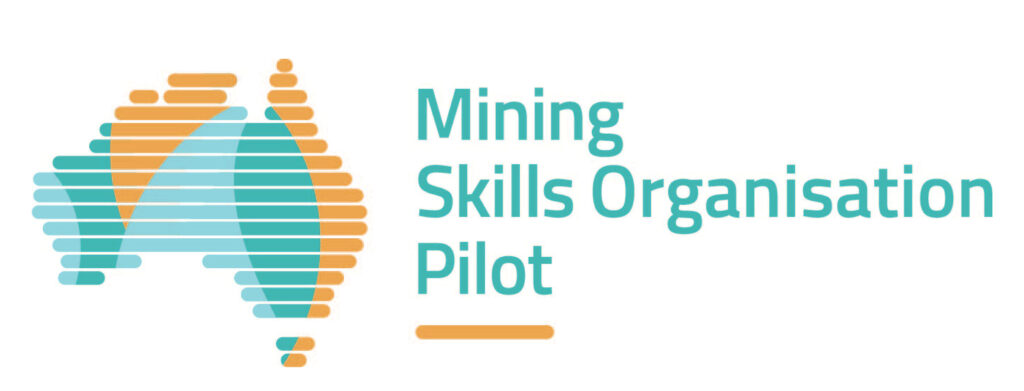TAFE Industry Roundtable 27.08.2021
Over the next few weeks, we will share recordings from the recent virtual TAFE and Industry Roundtable held Friday 27 August 2021. These include an excellent, thought-provoking economic and social analysis by author and political commentator, George Megalogenis; inspiring TAFE case studies about partnering with industry and higher education providers; and insightful perspectives from Skills Organisations (SO) and Service Skills Organisations (SSO) on effective industry engagement.
TAFEs collaborating with industry – leading practice
As part of the TAFE and industry roundtable four TAFEs presented excellent, diverse case studies on how they were working with industry partners, higher education providers and local communities to deliver emerging, in-demand workforce skills.
Institutes of Applied Technology – Steffen Faurby, Managing Director, TAFE NSW
- TAFE NSW is introducing a new tertiary model, institutes of applied technology (IAT), which feature collaboration with industry, universities, and TAFE NSW working together to respond to changes in industry demand and emerging skills needs.
- The IATs will fully integrate the theoretical study of university with the practical training of vocational education. Students will be able to study flexibly, for example, a student can complete a Certificate IV in year one, progress to a diploma in year two and have the option of achieving a Bachelor in Applied Technology in year three.
- IATs are being established in digital technology and construction with co-innovation in course design, and co-delivery with masterclasses, pathways and internships. Short course options and micro-credentials will be available for existing workers.
- Colocation will be encouraged with shared spaces – TAFE NSW is looking at what industry and university partners already have, and not necessarily building new infrastructure.
Mobilising Social Capital to Support Industry Needs – Darshi Ganeson, Managing Director, South Regional TAFE WA
- Mobilising social capital is at the forefront of South Regional TAFE’s industry engagement. In the regions connecting with industry is more organic and more relational than transactional compared to cities where it takes a lot longer to establish relational partnerships.
- Small wins are big wins in regional TAFEs.
- High quality examples demonstrated how South Regional TAFE has helped solve local workforce needs and built social capital at the same time. These include working with farmers and the local agricultural industry to train skilled workers to harvest grain.
- Principles for success included: connection and relationships, industry led, community supported, scalability, repeatability, commitment of immediate employment outcomes for graduates, lecturers still in industry and risks diversified.
- The second case study, Gather and Feast, highlighted how students learned to grow and source food, cook, clean and connect with community. It helped students better understand the local food culture and their community.
Training the Wind Energy Workforce of the Future – Bill Mundy, Manager Sales, Marketing and Community Engagement, Federation University, Victoria
- Generating wind power is an emerging industry in southwest Victoria which requires high level technical skills.
- A purpose-built training facility, the Asia Pacific Renewable Energy Training Centre (APRETC), was established in 2016 to address the lack of skilled workers and grow the local workforce. Before APRETC most workers were imported from overseas.
- Collaboration with renewable energy partners (Vestas, ACCIONA, GPG and Tilt Renewables), as well as the Victorian Government has resulted in a $1.8 million industry investment in this project.
- The first phase of the project is underway with the construction of a 23-metre training tower. It has been designed to give students real-world experience when training to work in the wind industry, or other industries that require working at heights, such as construction and maintenance.
- Once the tower is completed, Federation TAFE will be the only training provider in Australia able to deliver the Global Wind Organisation (GWO) basic safety training and refresher training courses from a simulated wind turbine tower. GWO accreditation is a requirement for anyone working on a wind turbine in Australia or around the world.
- The second stage of the APRETC will include a classroom, workshop and training equipment to deliver specialised training courses, such as wind turbine maintenance and blade repair.
Micro-credentials – Tracey Singh, Director, Product Agency, and Robert Petherbridge, Executive Director, TAFE Queensland
- Micro-credentials are emerging as potential solutions to the rapid upskilling that is required for the changing world of work. They can help address new skills to keep pace with changes in technology, systems and processes.
- There are five types of skills required to succeed in the new world of work and these include foundational, technical, enterprise, attribute and career management skills.
- The co-design process is very important when working with industry. It needs time and resources.
- Features of TAFE Queensland’s micro-credentials: non-accredited, focus on technical and enterprise skills and attributes; use a range of delivery modes and provide digital badges.
- An excellent example is the co-design of micro-credentials for autonomous vehicle mining operations as part of the Queensland Future Skills Partnership project. Partners include BHP Mitsubishi Alliance (BMA), CQUniversity Australia and TAFE Queensland.
Pandemic, Politics and Prospects
As part of the recent TAFE and Industry Roundtable, George Megalogenis, author and political commentator, presented a stimulating, national overview of Australia’s post pandemic economic recovery and its political implications. He talked about how diverse demographics and the cultural make-up of different states and territories, and their varied responses to the pandemic and recessions, created marked differences in economic and social drivers across the country.
Key messages
- The sectors of concern include travel, accommodation, hospitality, film production and creative arts. In contrast some professions are booming, and these include health, care services, aged care, disability care. There will be continued strong demand for jobs and skills in these areas.
- Australia and New Zealand are amongst the OECD countries with the lowest death rates because of COVID. This is a success story. However, vaccination rollouts have been slower impacting recovery.
- This leaves Australia and NZ in a unique situation – other countries are now opening up while Australia is locking down. ‘We can’t be in lockdown for ever otherwise we’ll be left behind’. However, there are marked differences in the approach to internal borders from states and territories.
- The best way to measure economic progress is jobs, and the story is surprising. Melbourne still has more jobs now than it did this time last year, same in Brisbane and Adelaide. Perth is booming.
- The decade prior to COVID already saw the changed relative power of cities and regions – apart from Melbourne there was more settlement in the regions from internal and overseas migration.
- Regional stories will be very important for TAFEs. Australia may well be looking at fundamental shifts in where people will live and work – likely more in regional areas.
- Understanding diversity of age is important – areas that attract and retain young people will prosper. This has implications for regional areas which have fewer young people; they are migrating to the cities. Governments should be thinking more about population distribution. Perth has a younger population than other capital cities.
- TAFEs’ mission in regions is to contribute to regional development – need to retain young people in regional areas.
- COVID, combined with a potential recession in parts of Australia, complicates the political narrative leading up to the next Federal election which is likely to be held in the first quarter of 2022. Therefore, it is difficult to predict outcomes of the next election given the pandemic and its uneven impacts (by location and industry) on the Australian economy.
Connect and co-create – what industry organisations are saying
The three SOs covering human services, digital technology, and mining, and two of the SSOs, Innovation Business Skills Australia (IBSA) and Australian Industry Standards, led a conversation about the criticality of industry engagement. They outlined their views about effective industry partnerships, priorities, challenges, and the role of TAFEs.
Common themes and messages include:
- The need to better understand industry pain points and workforce demands and collaborate with employers and industry to address issues; important to demonstrate value to all employers be they small, medium or large;
- Re-skilling and upskilling for employers are priorities; training needs to be flexible and agile to meet industry demand for skills;
- Digital transformation is occurring in all industry sectors; need to focus on digital technology transition processes;
- There is a need for a common language in training products and understanding digital skills pathways; opportunity to include digital capability in training products reviews;
- Opportunities exist to better codify VET staff capabilities in digital technology;
- It is important to put into place lifelong learning supports and opportunities;
- Apprenticeships continue to be the bedrock of the skills system;
- Mismatched qualifications still exist – need to work out how to use the TAFE system and the VET system more broadly; need flexible, stackable qualifications which include micro-credentials;
- Better services needed before, during and after training to engender a culture of lifelong learning;
- Need TAFEs for digital transformation and lifelong learning opportunities – leave no worker behind in the existing workforce;
- TAFEs continue to have an important role to play in skills building but must be flexible, responsive and timely;
- Align and collaborate with TAFEs -the TAFE sector is very important in digital upskilling.






